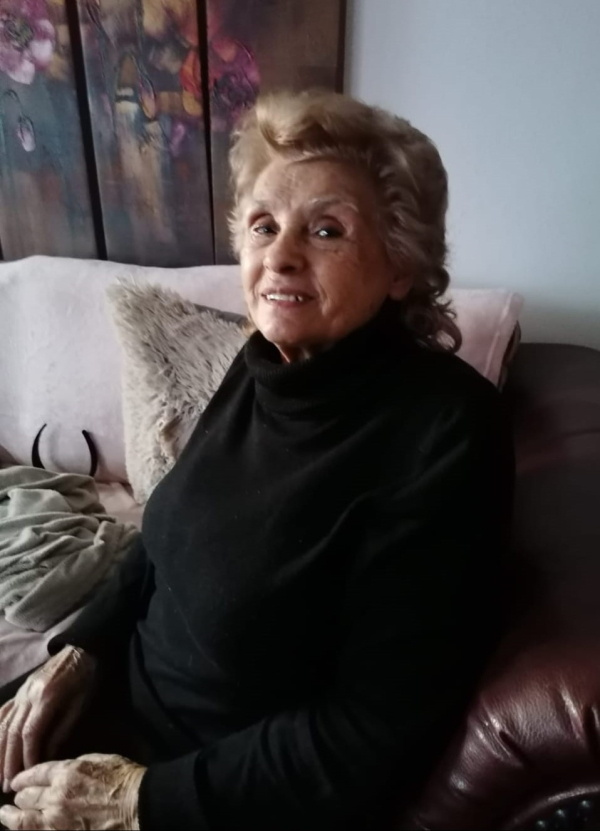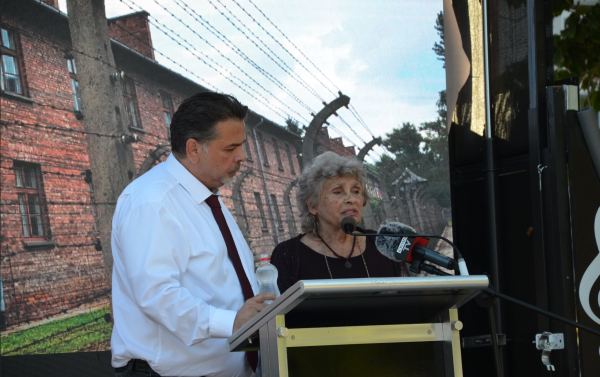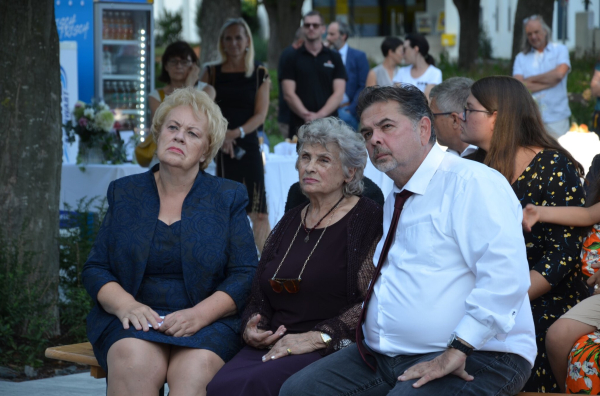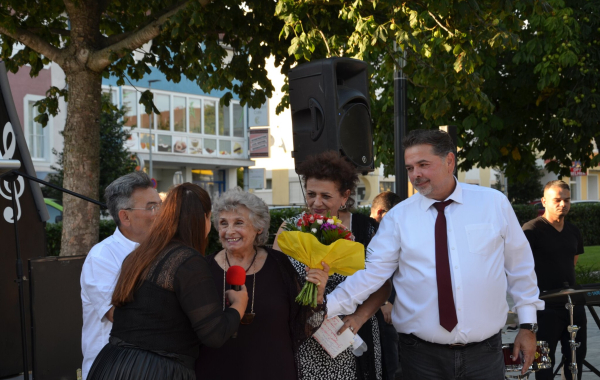Contemporary witness Rosa Schneeberger
Rosa Schneeberger was born in Vienna in 1936, the daughter of Katharina and Robert Schneeberger. Rosa Schneeberger has fond memories of the early years of her childhood, which she spent in Vienna-Floridsdorf. Close to the "Wasserpark" and the Old Danube, the family lived in a large caravan on her grandfather's property in the summer. Together with her siblings, she spent carefree summers by and on the water. In winter, the family lived in an apartment in Vienna-Floridsdorf.

Rosa Schneeberger's father and brothers were musicians. They played music in the "Kalitz" restaurant, among other places. Rosa Schneeberger calls the family's grandfather "our king". He cooked for the family and also provided homeless people with a hot meal and often also donated money.
"It was the case that everyone who earned something had to donate to the poor. " *
Rosa Schneeberger's previously peaceful and carefree childhood came to a violent end. When Rosa Schneeberger was three years old, in 1939, her father and his brothers were arrested by the Nazi terror regime and deported to Dachau concentration camp and subsequently to Buchenwald concentration camp. In July 1941, Robert Schneeberger was transferred to Mauthausen concentration camp, where he was forced to perform hard labour in the concentration camp's quarry.
"They took everyone who wasn't what they wanted. They called them 'asocial'. In any case, they took my father, locked him up and took him to Mauthausen. But after two years, they suddenly took us too, even though we hadn't done anything." *
Rosa Schneeberger was five years old when she was arrested together with her mother and siblings as a Sintizza and deported to the Lackenbach camp. The camp, known by the National Socialists as the "Lackenbach Gypsy detention camp" ("Zigeuner-Anhaltelager Lackenbach"), was set up in November 1940 on the site of a former estate, 15 kilometers west of Deutschkreutz in Burgenland.

Rosa Schneeberger describes the inhumane conditions in Lackenbach as follows:
"They put us in a big hay barn. They had made platforms like for the animals and we were up on the second floor and my grandfather was down by the gate. (...) There was only one well and not far from it was a big toilet, nothing concreted, just a pit about three meters wide and seven meters long. They built planks next to it. I can't forget that. The poor people who were ill couldn't sit properly without a backrest, they fell down and they were just left lying there." *
In the Lackenbach camp, the family tried to survive under unimaginable conditions. Rosa Schneeberger had to watch many people die. The family's grandfather did not survive either. She had to witness how her beloved grandfather was buried in a mass grave.
Hunger, cold, diseases such as typhus and hard forced labour, which the children also had to perform, weakened all the family members greatly, but they survived and in 1941 they also saw their father Robert Schneeberger again.
He had been seriously injured during forced labour in the quarry of the Mauthausen concentration camp. He was transferred to Lackenbach via the "Elisabethpromenade" police prison in October 1941, where he also had to perform forced labour and was forced to play music to entertain the guards.
"My father had to go to work in the forest with the men and we children were taken by an overseer. We were already six or seven years old and had to go into the fields and get the big stones out of the ground so that everything would grow better for the farmers. We didn't even have head covering." *

Rosa Schneeberger's youngest brother Robert was born in the Lackenbach camp. The family was aware that it was probably only the fact that the father of the family was "entertaining" the guards that saved them from deportation to one of the extermination camps and certain death.
"That was our salvation. Because in the next few weeks, three transports of our people, mothers with five, seven or eight children, were taken away to one of those 'shower baths', they were told. They had to undress for delousing and gas was used instead of water. Then they were burned. (...) But on the day we were supposed to leave, my father arrived with his brothers, who were still alive." *
Rosa Schneeberger and her family survived in the Lackenbach camp until the liberation by the Red Army in April 1945.
For many years, Rosa Schneeberger remained silent about what she had to experience during these years of her childhood. She broke her silence out of fear that history could repeat itself and that the atrocities of the Nazi terror regime could be committed again today.
Rosa Schneeberger speaks today to warn and admonish young people in particular and to appeal for a "never again".
Sources:
* Rosa Schneeberger in a speech in 2023 as part of the National Holocaust Remembrance Day for Roma and Sinti in Oberwart (Burgenland): www.vhs-roma.eu
volksgruppen.orf.at
lexim.uni-hamburg.de
Photos of the commemorative event in Oberwart © MeinBezirk.at / Anika Paul







